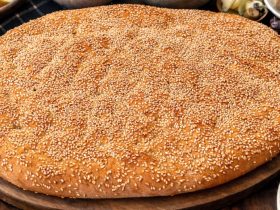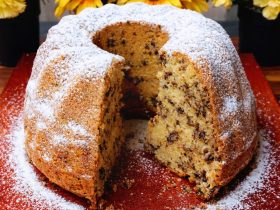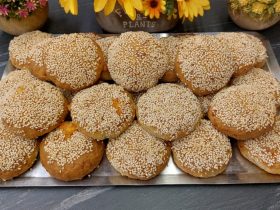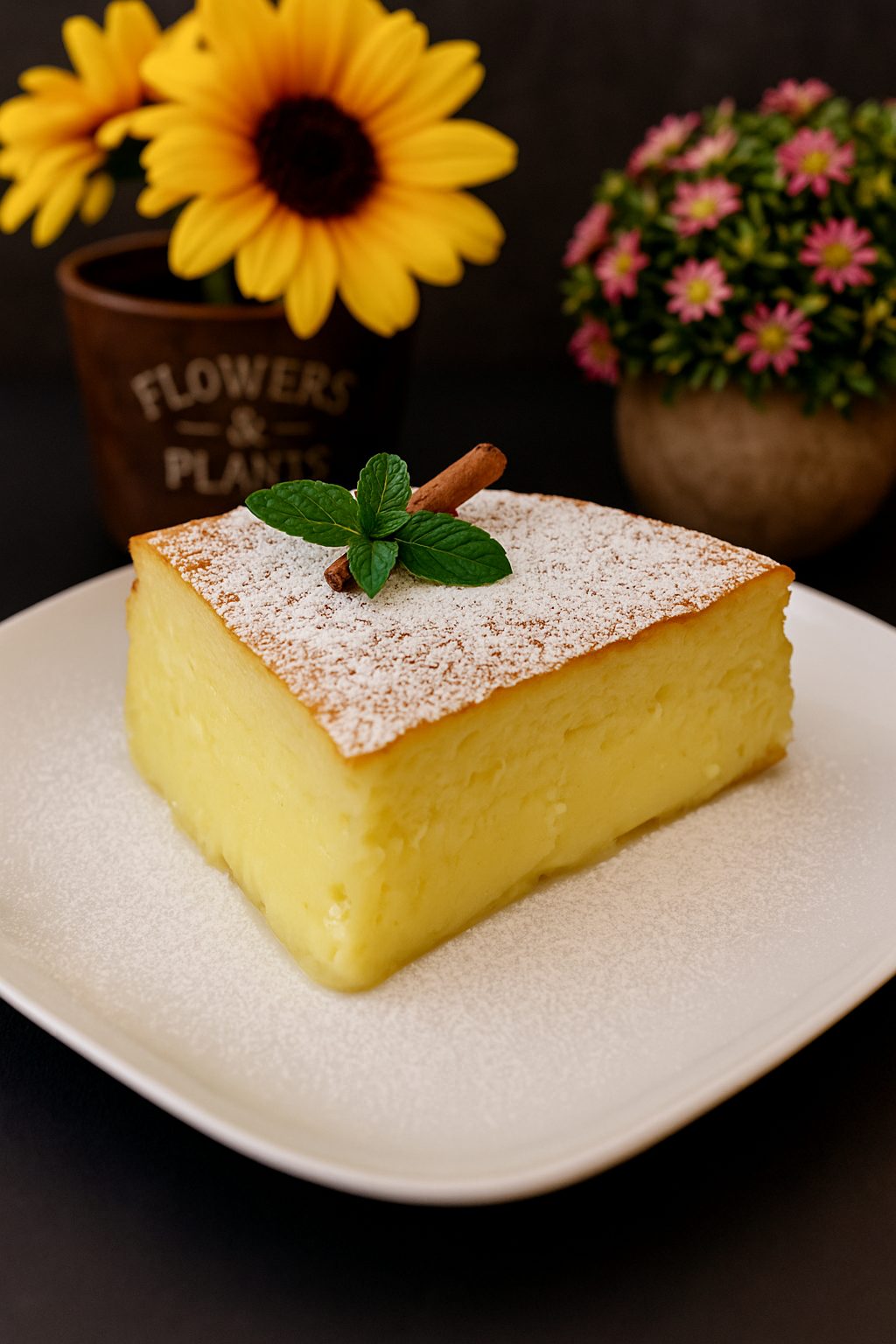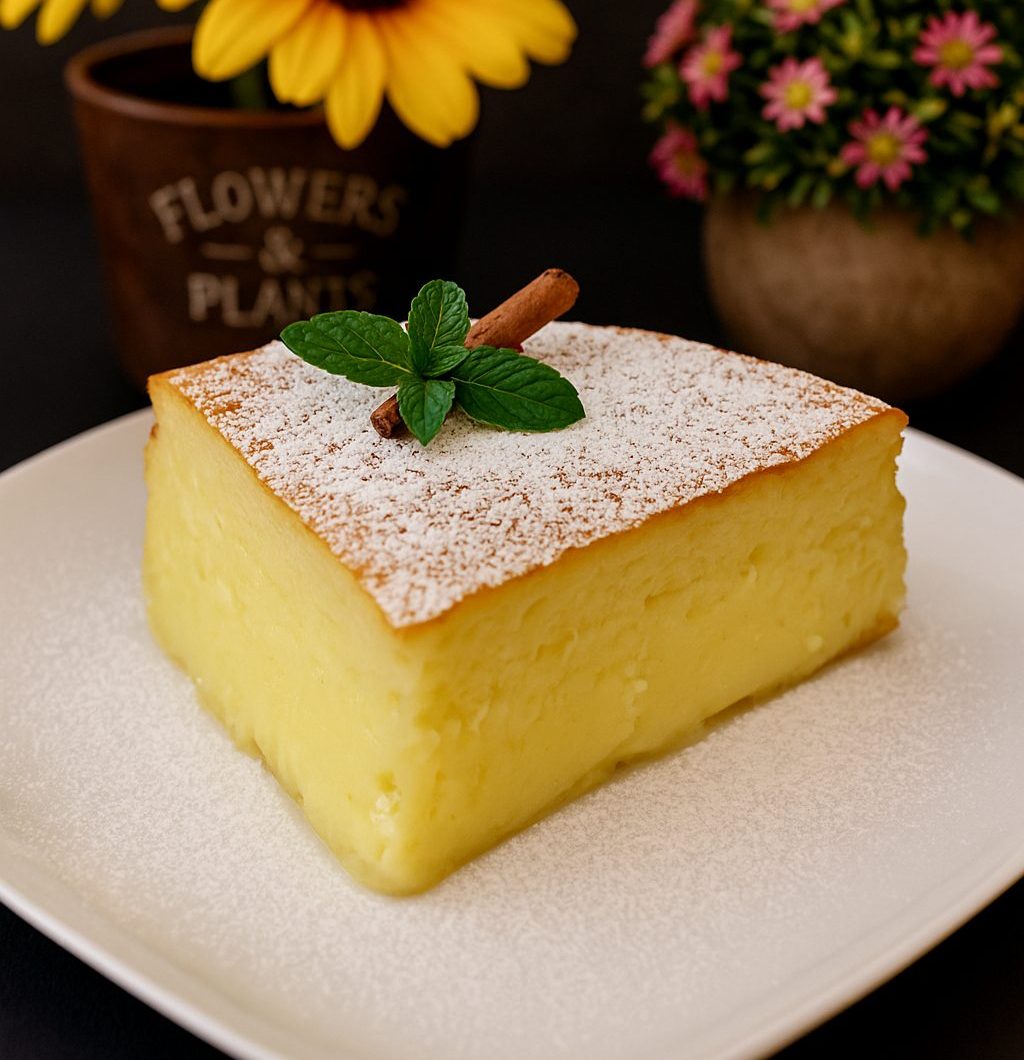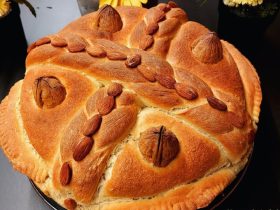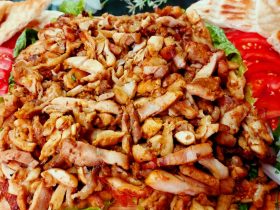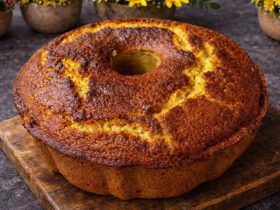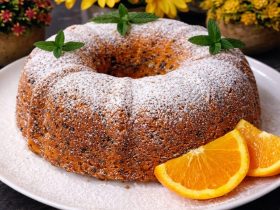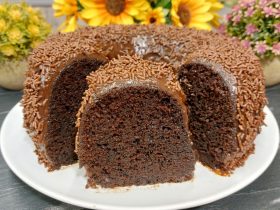This Traditional Greek Milk Pie (Galatopita) is a creamy, custard-like dessert made with milk, semolina, and simple pantry ingredients — no phyllo required. The result is a silky, golden pie with a caramelized top that melts in your mouth. Perfect for family gatherings, festive occasions, or a sweet everyday treat, this no-phyllo galatopita is one of the easiest traditional Greek desserts you can make.
Galatopita – A Classic Greek Dessert Without Phyllo
Galatopita (γαλατόπιτα) is one of the simplest and most beloved Greek desserts. Its name literally means “milk pie” — and that’s exactly what it is: a creamy semolina-based custard pie. While some versions are wrapped in phyllo, this no-phyllo galatopita is even easier to prepare, making it perfect for beginners.
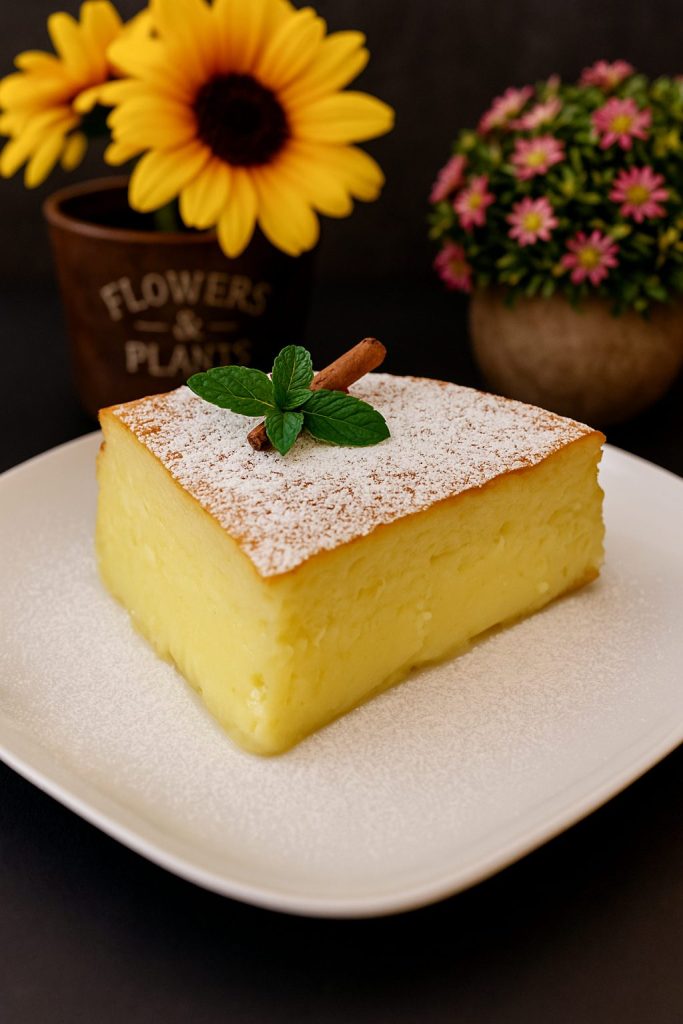
What Makes This Recipe Special
- No Phyllo Needed: Just mix, bake, and enjoy — no layering or brushing required.
- Creamy Texture: The combination of semolina and milk creates a soft custard-like filling.
- Golden Finish: The egg-and-sugar glaze caramelizes during baking for a beautiful finish.
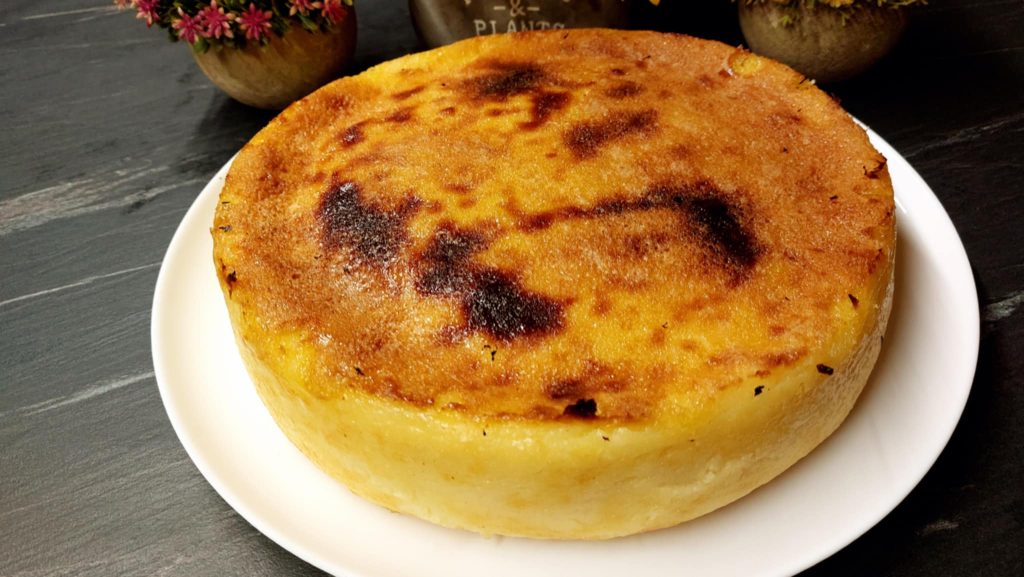
Serving Suggestions
- Enjoy warm or at room temperature, sprinkled with cinnamon for a classic Greek touch.
- Serve with a dollop of whipped cream or a drizzle of honey for extra indulgence.
- Perfect alongside Greek coffee or tea as an afternoon treat.
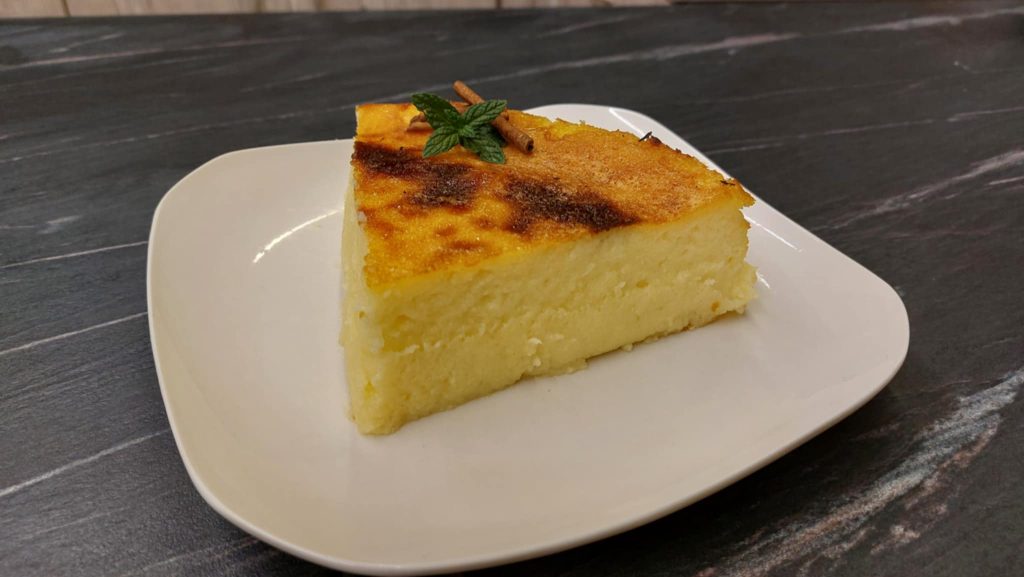
This traditional Greek galatopita is proof that simple ingredients can create an elegant dessert. Whether for holidays or everyday enjoyment, it’s a crowd-pleasing sweet that highlights the rustic charm of Greek baking.
Related Recipes You May Enjoy
- Greek Galatopita (Milk Pie with Phyllo) – Traditional Custard Dessert
- Golden Crispy Tulumbakia – Syrup-Soaked Greek Fritters
- Greek Orange Syrup Cake (Portokalopita) Without Phyllo
Nutrition Facts
8 servings per container
- Amount Per ServingCalories605
- % Daily Value *
- Total Fat
32g
42%
- Saturated Fat 18g 90%
- Sodium 140mg 7%
- Total Carbohydrate
50g
19%
- Total Sugars 36g
- Protein 10g 20%
* The % Daily Value tells you how much a nutrient in a serving of food contributes to a daily diet. 2,000 calories a day is used for general nutrition advice.

